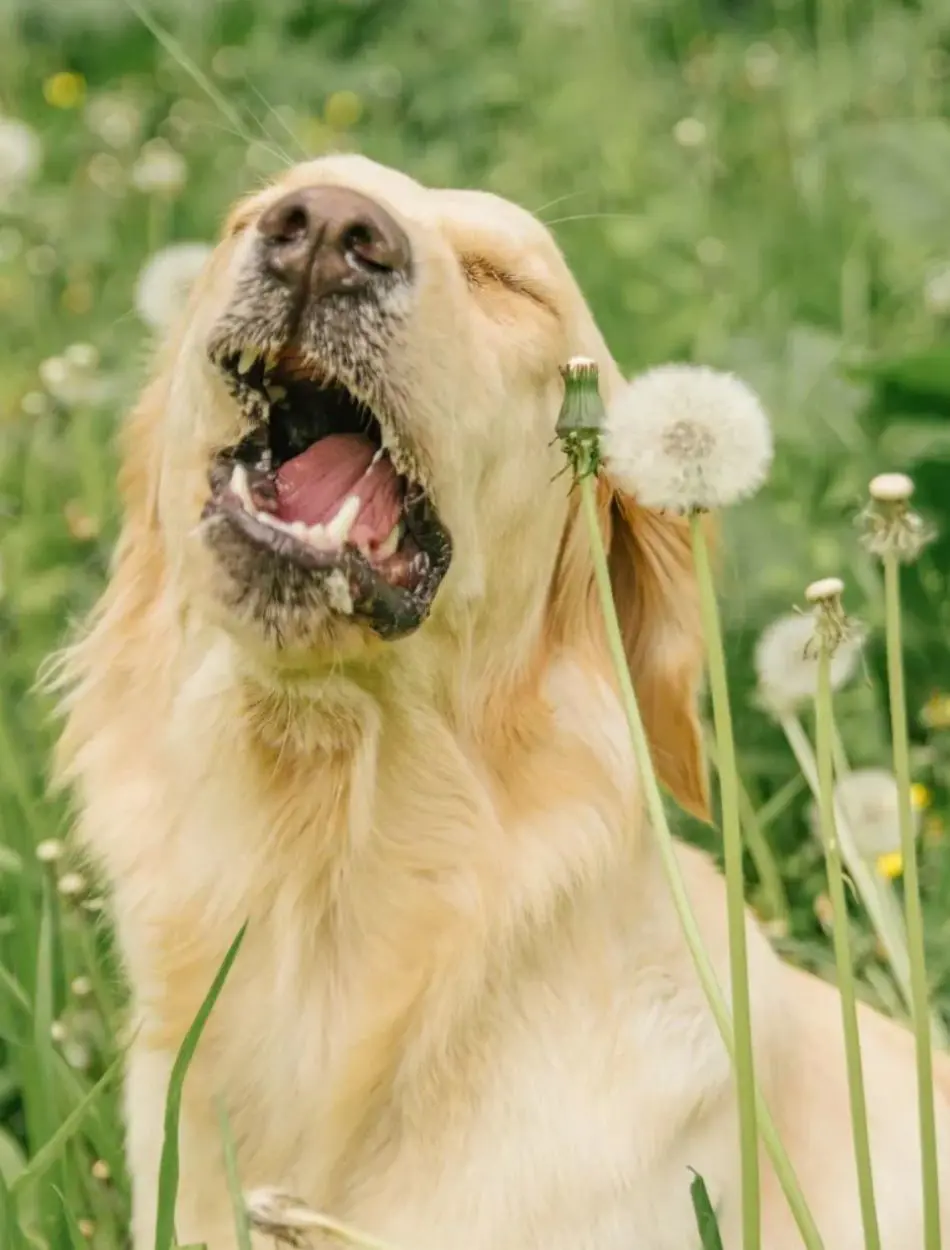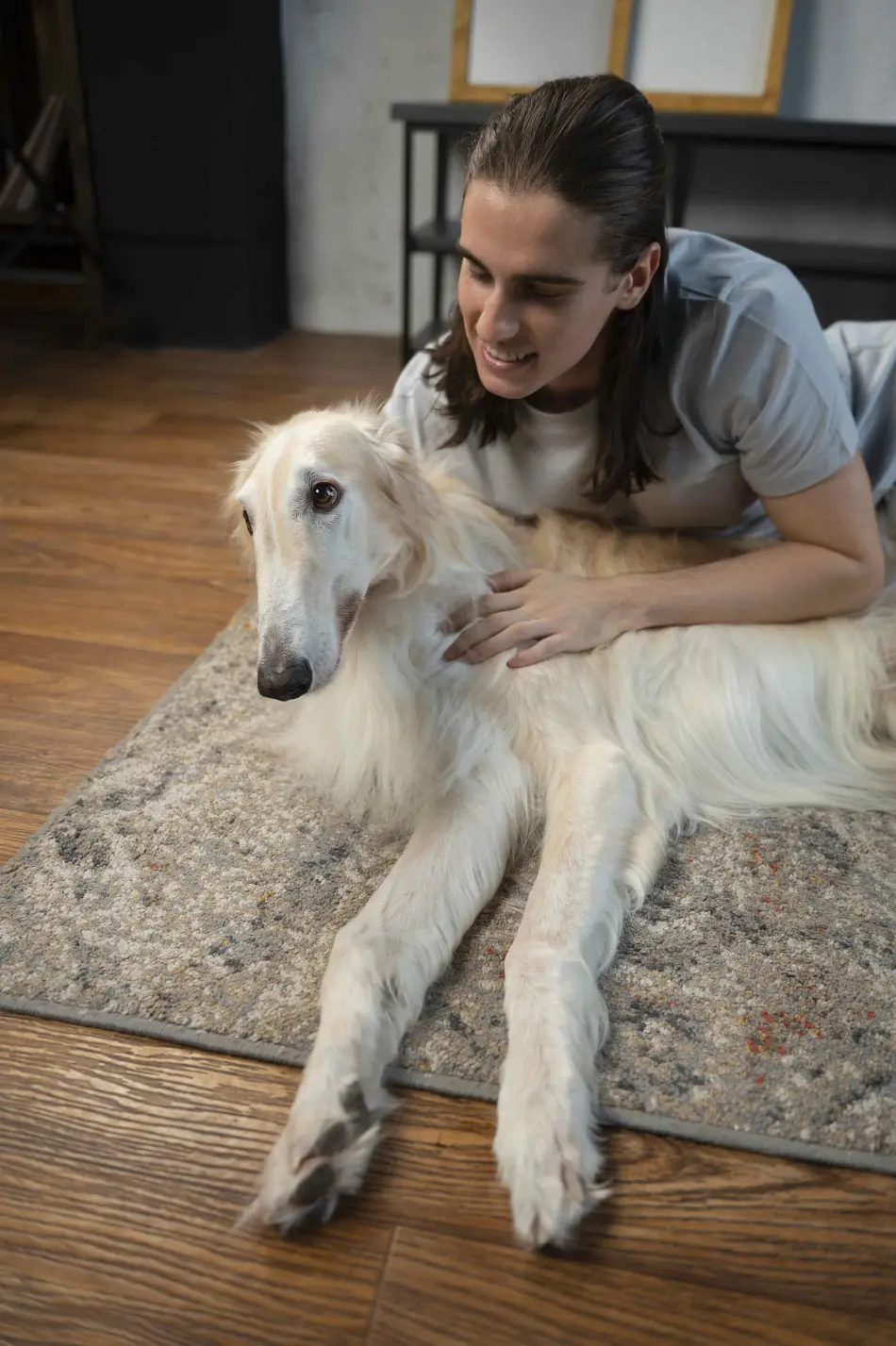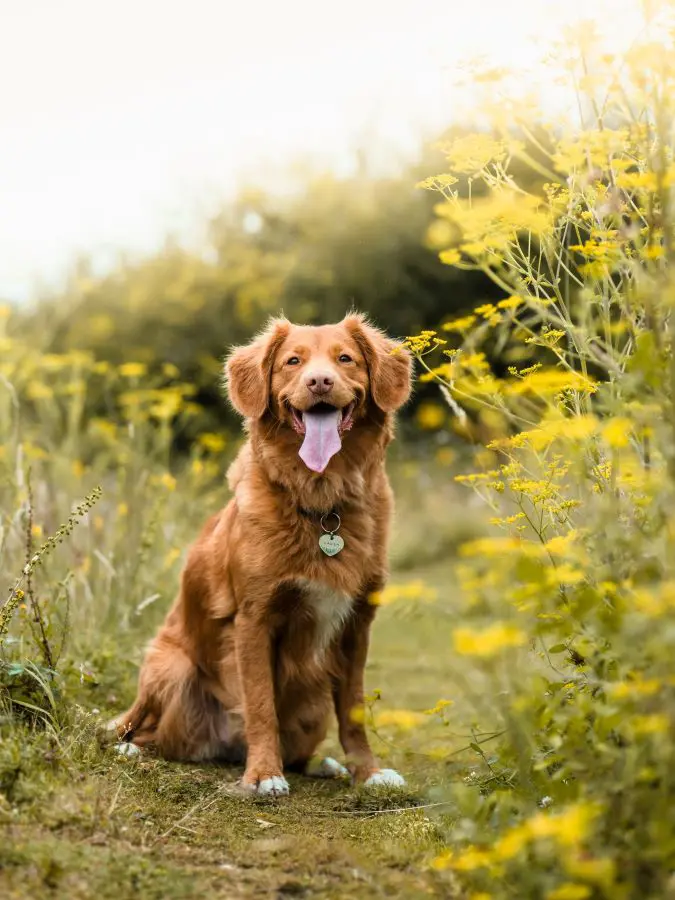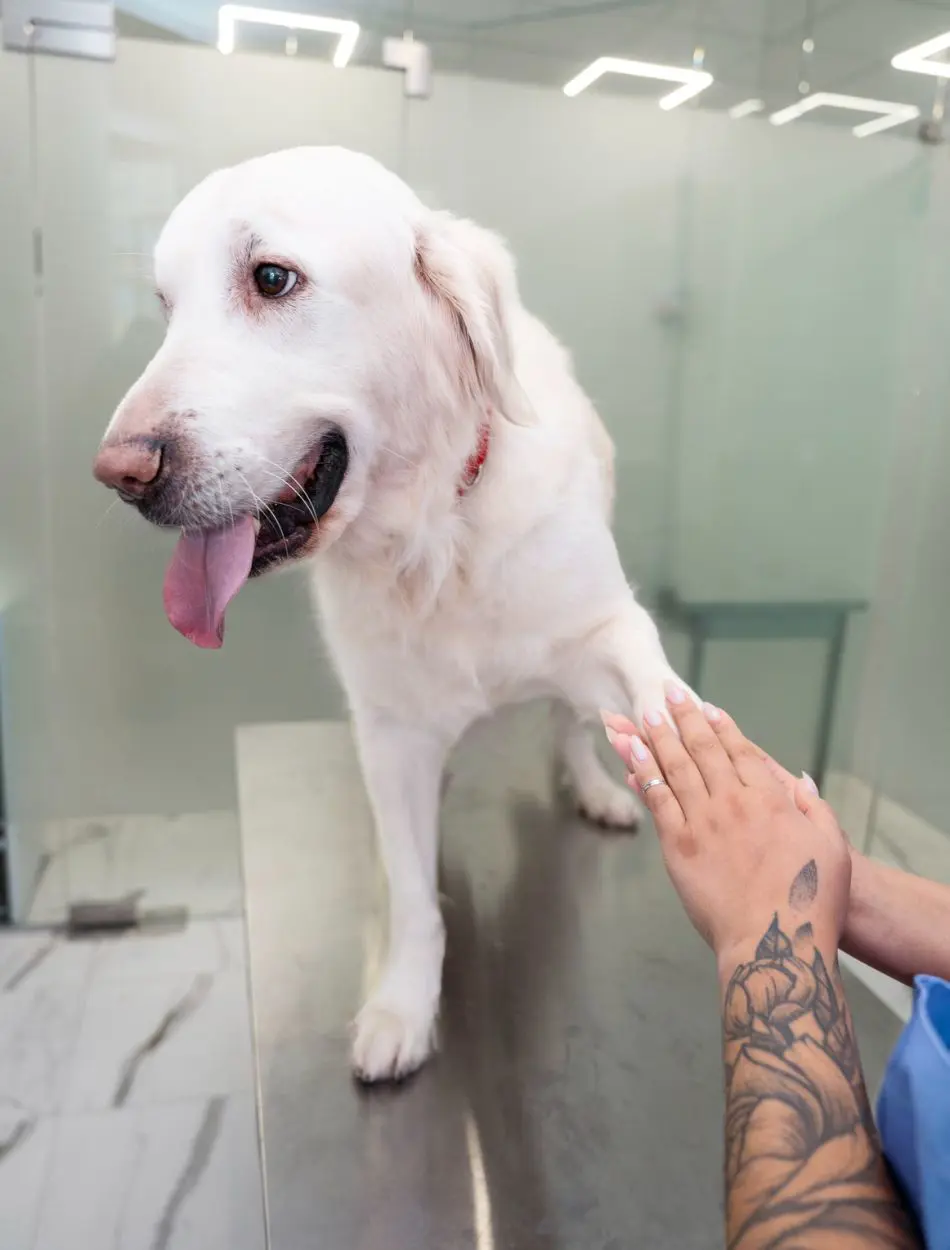15 Reasons On Why Is My Dog Eating Grass
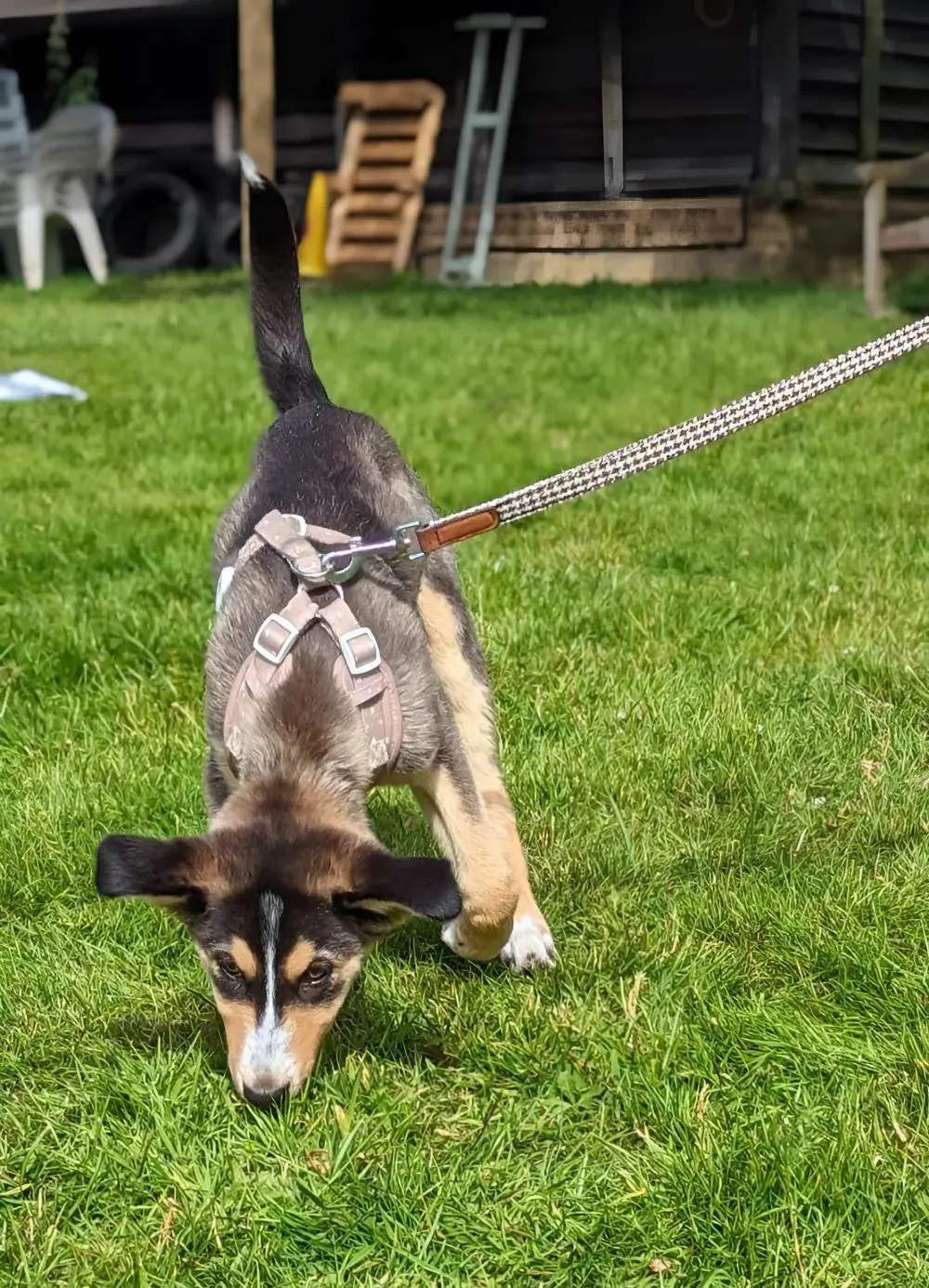
One of the most intriguing and frequently discussed habits of dogs is their occasional urge to munch on grass. This behavior is quite common and not as worrisome as some other items dogs might ingest. However, you might want to discourage your dog from eating grass if you're worried about pesticides or parasites lurking in your yard.
The exact reason for this grazing isn't fully understood; it could be an instinct from their wild ancestors, an indicator of health or behavioral issues, or a way to address a dietary deficiency. There are some side effects of grass on dogs while there are also some benefits.
Here are some possible reasons for this behavior:
1. Natural Instinct
Dogs are omnivores by nature, inheriting instincts from their wild ancestors, who often ate grass to supplement their diet with fiber and essential nutrients. This natural behavior can still be observed in domestic dogs today. Consuming grass helps them meet their dietary fiber needs, aiding in digestion and bowel regularity.
Additionally, grass contains nutrients like folic acid, which is vital for various bodily functions. This instinctual behavior suggests that dogs intuitively seek out grass to balance their diet and maintain overall health, reflecting their ancestral dietary habits.
2. Boredom
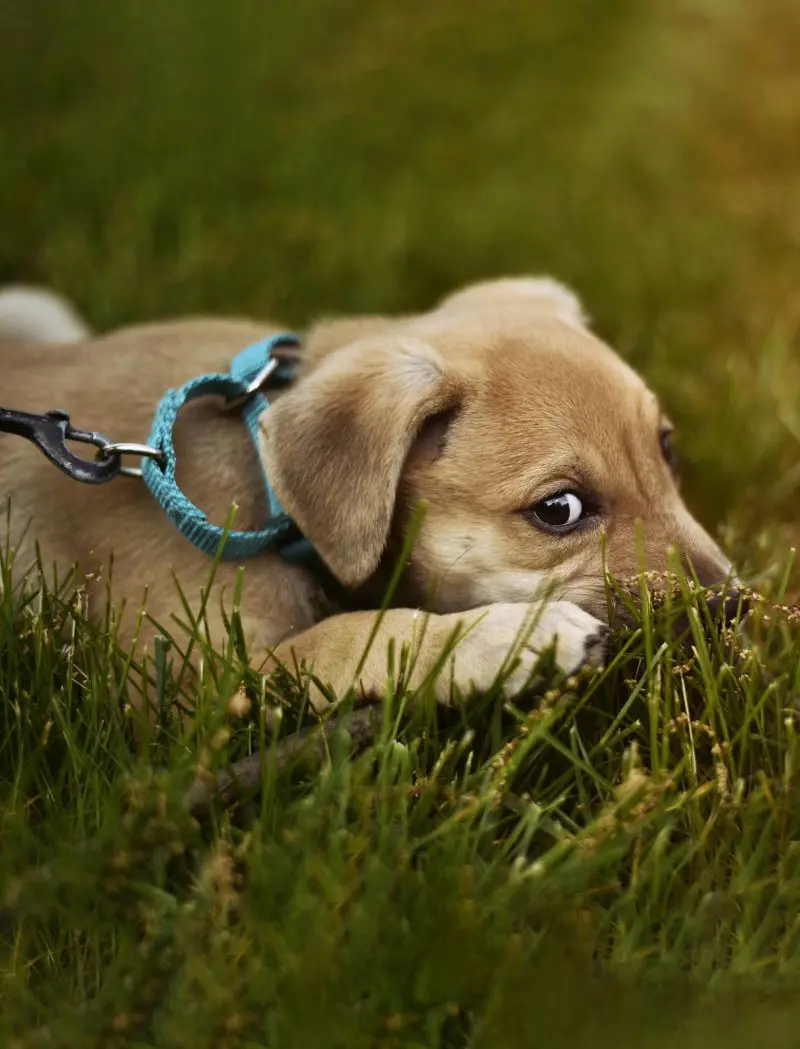
Boredom is a common reason why dogs eat grass. When dogs lack mental and physical stimulation, they may engage in behaviors that provide some form of entertainment or activity. Eating grass can serve as a way to alleviate boredom, offering a sensory experience through taste and texture.
This behavior might also be a way for dogs to attract attention or break the monotony of their daily routine. Ensuring that dogs have sufficient exercise, mental challenges, and interaction can help reduce boredom-related grass eating, keeping them engaged and less likely to resort to such behaviors out of sheer tedium.
3. Nutrient Deficiency
Nutrient deficiency is another reason why dogs may eat grass. Dogs instinctively seek out grass to compensate for the lack of certain essential nutrients in their diet.
Grass provides dietary fiber, which aids in digestion. Additionally, grass contains micronutrients such as folic acid, which is crucial for various bodily functions including DNA synthesis and repair.
When a dog's diet lacks specific vitamins, minerals, or fiber, they may turn to grass as a natural supplement to fill these nutritional gaps. Ensuring a balanced diet with all necessary nutrients can help reduce this behavior so that the dog's dietary needs are adequately met.
4. Upset Stomach
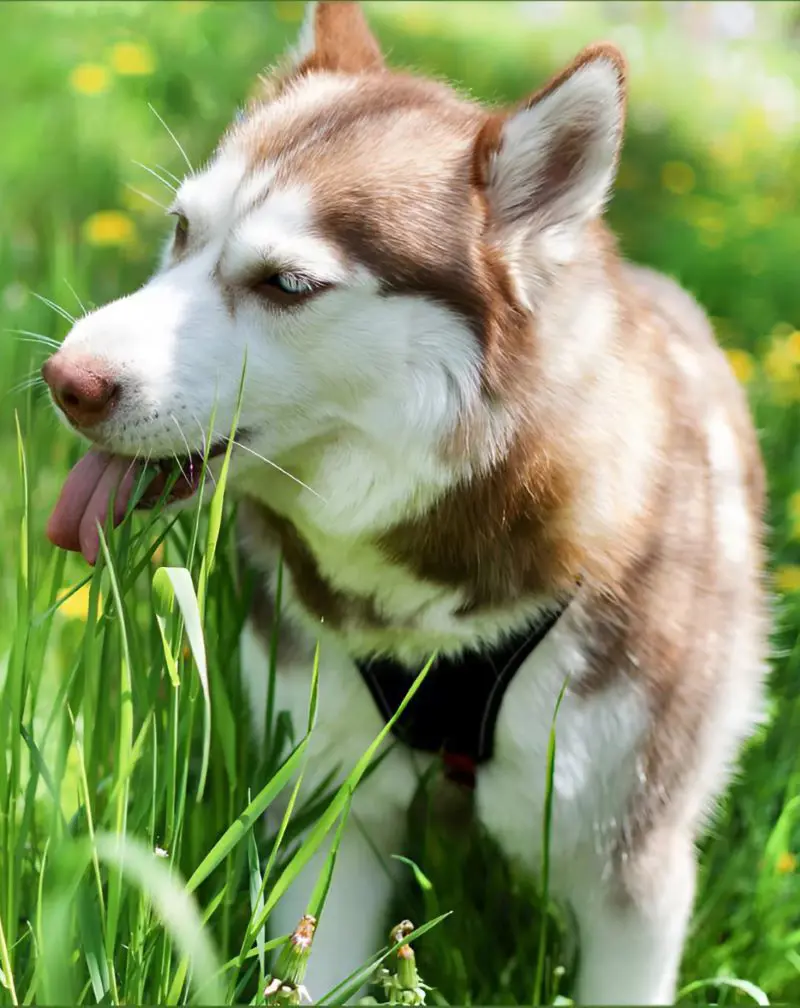
Dogs sometimes turn to grass when their stomachs are upset or inflamed. For some dogs, it's an instinctual response aimed at triggering vomiting. However, not all grass-eating leads to vomiting. Some believe dogs eat grass to relieve their upset stomachs, while others suggest that grass itself might cause stomach issues in some cases.
It's often unclear whether nausea or grass-eating came first, presenting a bit of a dilemma. Despite theories, scientific studies on this behavior are limited, suggesting that for most dogs, eating grass is simply a normal part of their behavior rather than a symptom of illness.
5. Seeking Attention
Dog eating grass can mean a ploy so their owners give them extra attention. This could involve more talking or offering treats to distract them from grass-eating and redirect their focus. This interaction can reinforce the idea that eating grass leads to attention from their owner.
In some cases, when dogs are pulled away from grassy areas, it might pique their interest even more, turning it into a forbidden fruit scenario.
Dogs are perceptive and can learn quickly—if they notice that grass-eating gets them more affection or interaction, they might adopt it as a behavior to seek additional attention from their owner.
6. Taste and Texture
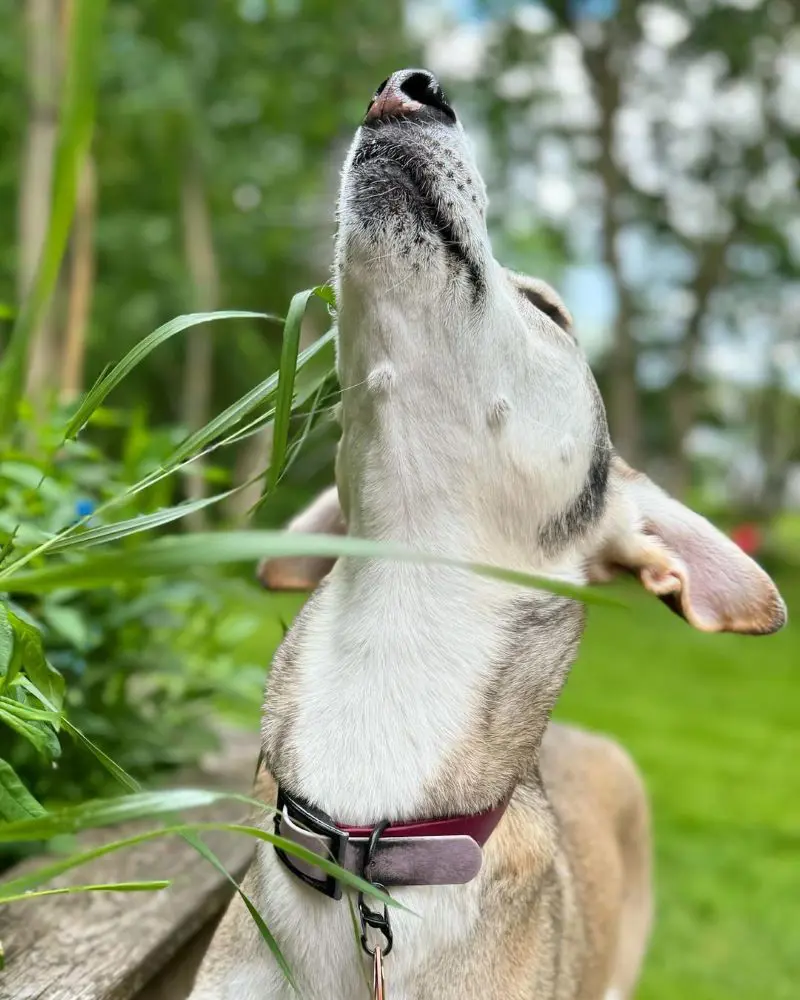
Some domestic dogs are naturally drawn to the taste and texture of grass, especially young, fresh spring grasses. Unlike their wild counterparts, modern domestic dogs often have a more limited diet.
Wild canines such as coyotes regularly consume vegetation found in the stomachs of their prey, along with roots, grass, and berries in addition to meat.
This natural inclination towards plant consumption can be seen in domestic dogs, who may also enjoy occasional plant-based snacks like sliced bananas, green beans, or spinach alongside their regular diet. This behavior reflects a natural instinct inherited from their wild ancestors, even in a more domesticated lifestyle.
7. Behavioral Conditions
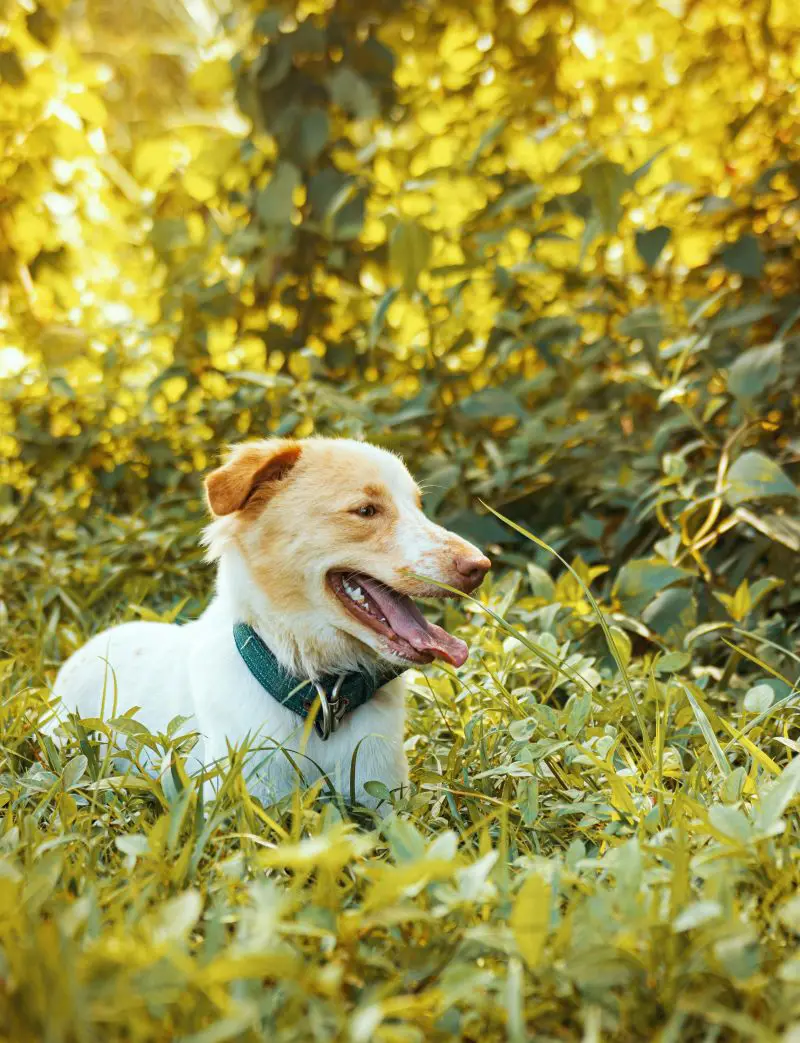
Some dogs can develop a condition known as pica, where they compulsively chew and consume non-nutritive substances that provide no physical benefit. This behavior can stem from psychological factors like anxiety, boredom, or stress.
A 2019 study in Japan surveyed 2,000 dog owners and identified pica as one of the top behavioral issues, alongside barking at household noises and unfamiliar visitors. The study also noted a higher likelihood of pica in younger dogs and those who have been neutered.
This suggests that while pica is not uncommon, it often manifests more frequently in certain demographics of dogs, potentially indicating a link between age, reproductive status, and the development of compulsive behaviors.
8. Mimicking Behavior
Dogs are social animals and often learn by observing and imitating the actions of other dogs or animals in their environment. If they see other dogs or animals eating grass, they may mimic this behavior out of curiosity or social learning.
This mimicry can stem from the natural instinct to follow the pack or fit into their social group. Younger dogs or puppies are particularly prone to copying behaviors as they explore and learn about their surroundings.
Providing ample opportunities for positive social interactions and ensuring that dogs have other engaging activities can help prevent grass-eating behavior driven by mimicry, promoting healthier habits.
9. Exploration and Curiosity
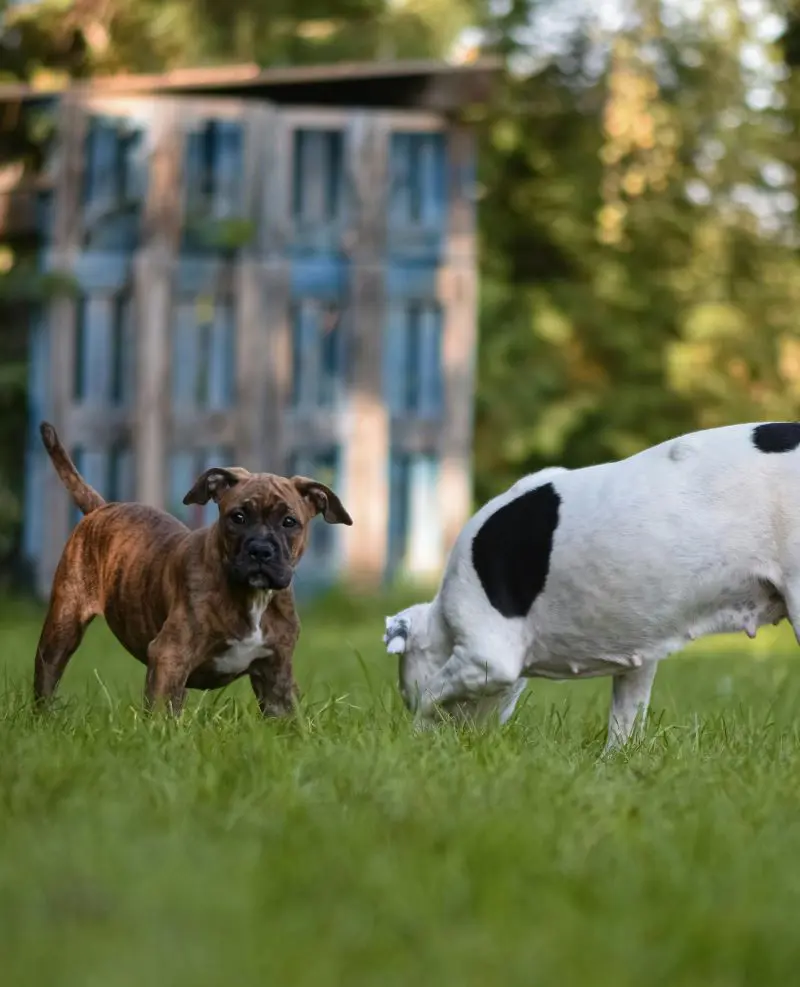
Being naturally inquisitive creatures, dogs use their mouths to explore their environment, much like human infants. Grass is readily available and has an interesting texture and taste, which can intrigue dogs, especially puppies.
This behavior is part of their instinct to investigate new and different objects in their surroundings. By chewing on grass, dogs satisfy their curiosity and gain new sensory experiences.
While this exploratory behavior is generally harmless, it is important for dog owners to ensure their pets are in a safe environment free from harmful substances. Providing various toys and activities can also help channel their curiosity in more appropriate ways.
10. Stress or Anxiety
Dogs may eat grass as a response to stress or anxiety. When dogs feel anxious or stressed, they often exhibit coping behaviors to self-soothe, and grass-eating can be one such behavior. This act might provide a calming sensory experience, helping to alleviate their stress.
Factors such as changes in their environment, separation anxiety, or lack of mental and physical stimulation can trigger this behavior. Grass-eating can serve as a distraction or a way to focus their nervous energy.
Addressing the root causes of stress or anxiety, through proper training, a stable routine, and sufficient exercise and mental enrichment, can help reduce this behavior and improve the overall well-being of the dog.
11. Seasonal Changes
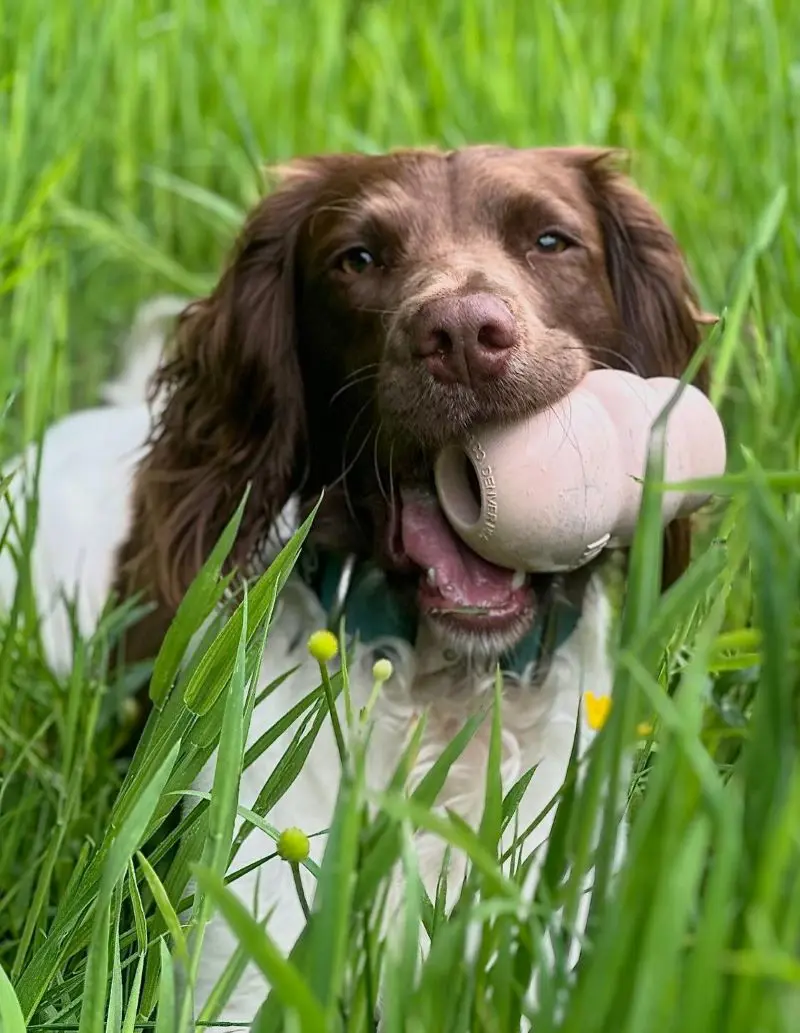
Seasonal changes can influence dogs to eat grass. In spring and summer, fresh, tender grass is more abundant and appealing due to its texture and taste. Dogs might be drawn to the new growth out of curiosity or as a natural response to the change in their environment.
Additionally, the increased outdoor activity during these seasons exposes dogs to more grassy areas, providing more opportunities for grass-eating. Seasonal allergies or changes in diet and activity levels can also affect digestive health, prompting dogs to eat grass as a natural digestive aid.
12. Hydration
Grass contains moisture, and dogs may instinctively chew on it to supplement their water intake, especially if they are mildly dehydrated.
This behavior is more likely to occur during hot weather or after physical activity when their water needs are higher. Dogs may also eat grass if their water bowl is empty or if they have limited access to fresh water.
If your dog tends to eat grass early in the morning or late in the evening when the grass is covered in dew, this could be the reason. Ensuring that your dog always has access to clean, fresh water can help reduce grass-eating behavior driven by the need for hydration.
13. Hunger
When a dog feels hungry and doesn't have immediate access to food, it might resort to grazing on grass as a temporary solution to satisfy its hunger pangs.
Grass provides a bit of bulk in the stomach, which can help the dog feel fuller for a short period, even if it doesn't provide the same nutrients as a proper meal. This behavior is more common in dogs that have irregular feeding schedules or those that may not be getting enough food during mealtimes.
14. To Clean Teeth
The texture of grass acts like a mild abrasive, which can help scrub away food particles and plaque that accumulate on a dog’s teeth over time. As dogs chew on the grass, the fibrous blades work to dislodge debris stuck between their teeth, providing a natural cleaning action similar to how a toothbrush works for humans.
This behavior might be more common in dogs that don’t receive regular dental care or chew on dental treats. Eating grass can be their instinctive way of maintaining oral hygiene, especially if their diet lacks other forms of dental maintenance like bones or specially designed dental chews.
15. Lack of Exercise
Lack of exercise can be another reason why dogs eat grass. Dogs are naturally active animals that require regular physical activity to stay healthy and mentally stimulated. When a dog doesn’t get enough exercise, they may become bored or restless, leading them to engage in behaviors like eating grass as a way to burn off excess energy.
Without adequate exercise, dogs may also experience pent-up stress or anxiety, which they might try to alleviate by chewing on grass.
Is Eating Grass Good Or Bad For Dogs?
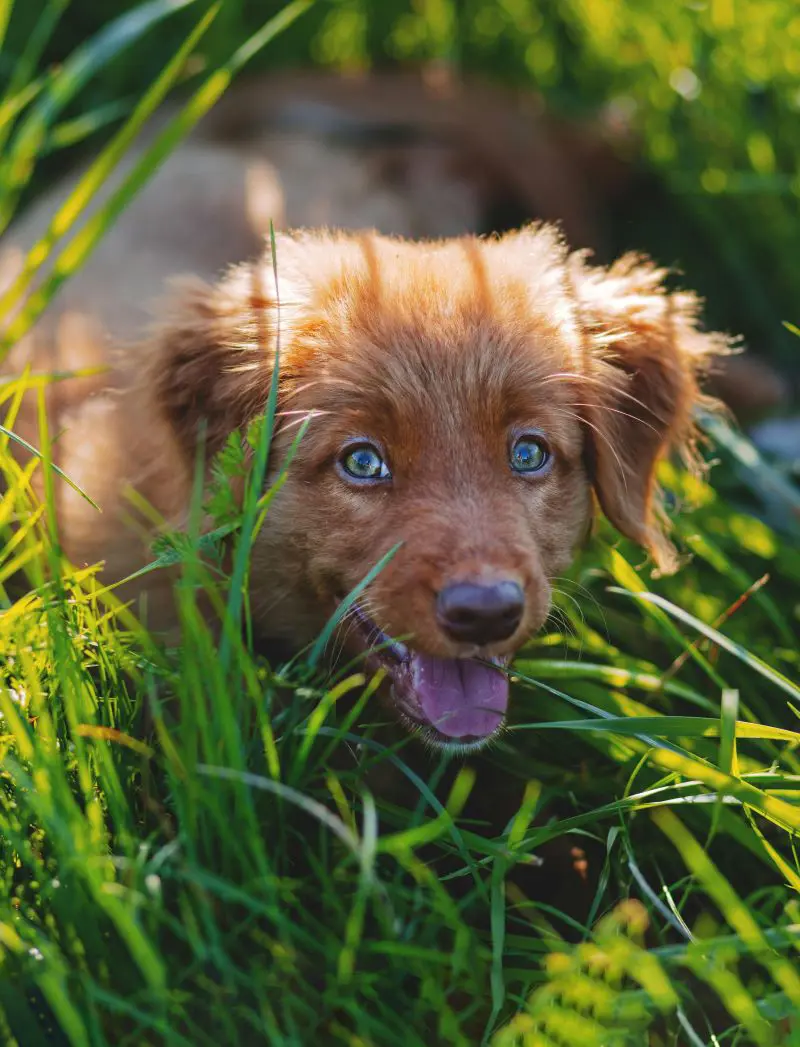
Eating grass is a common behavior in dogs and is generally considered normal. Whether it is good or bad depends on a few factors:
Potential Benefits
- Dietary Fiber: Grass provides some dietary fiber, which can aid in digestion.
- Nutrient Intake: Grass may contain trace nutrients or minerals that dogs might crave.
- Instinctual Behavior: Some dogs may eat grass due to instinctual behavior inherited from their wild ancestors, who would eat entire prey, including the stomach contents of herbivores.
Potential Risks
- Pesticides and Chemicals: Grass treated with pesticides, herbicides, or fertilizers can be harmful if ingested.
- Gastrointestinal Issues: Some dogs may vomit after eating grass, which might indicate an upset stomach or an attempt to self-medicate.
- Parasites: Grass can sometimes harbor parasites or bacteria that could potentially cause infections.
Observations
- Occasional Grazing: If your dog occasionally nibbles on grass and doesn’t show any signs of distress, it’s usually harmless.
- Frequent or Excessive Eating: If your dog is frequently eating grass and also showing signs of digestive upset, lethargy, or other health issues, it’s a good idea to consult a veterinarian.
Overall, occasional grass eating is not typically a cause for concern, but it’s always good to be mindful of your dog’s health and environment.
How To Stop Dogs From Eating Grass
If you want to discourage your dog from eating grass, here are some strategies you can try:
Improve Diet and Nutrition
Ensuring your dog has a balanced diet can prevent them from seeking out nutrients in grass. Check their food for a proper mix of proteins, fats, vitamins, and minerals. Adding high-fiber foods can aid in digestion and reduce the urge to graze.
Provide Alternatives
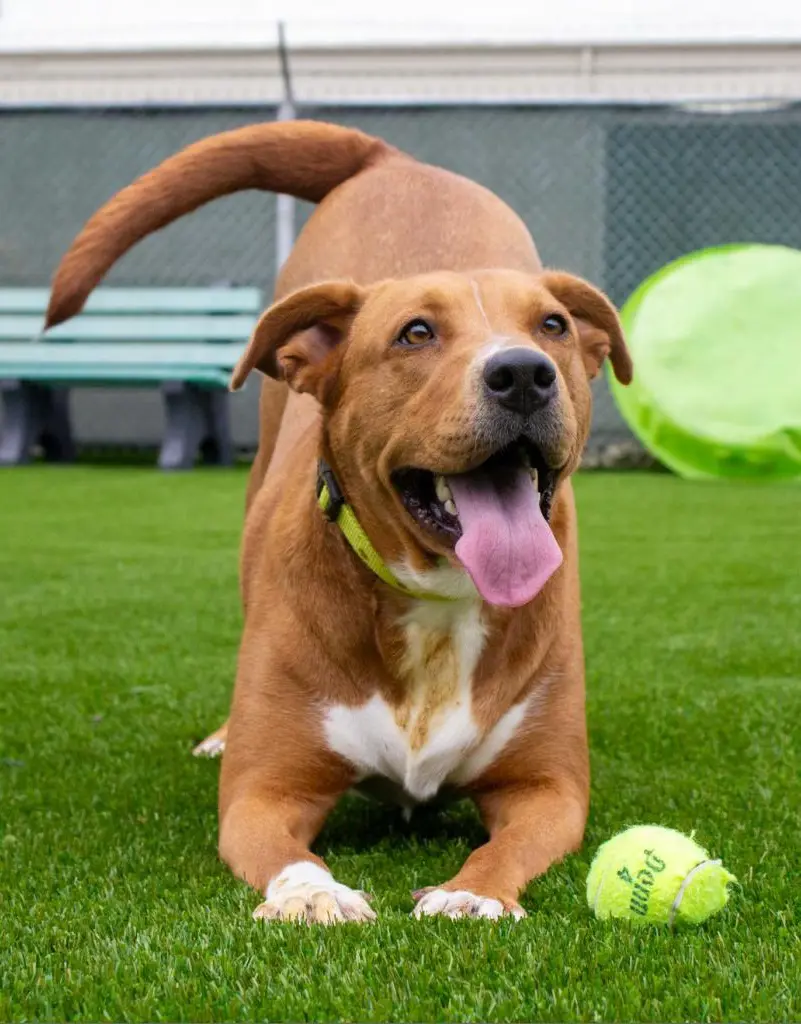
Offer your dog chew toys or bones to occupy them and divert their attention from grass. You can also introduce safe, pet-friendly plants specifically grown for pets, providing a safe alternative if they like to chew on greenery.
Increase Physical Activity and Mental Stimulation
Regular exercise can reduce boredom, a common reason dogs eat grass. Engage your dog with physical activities like walks and playtime, and include mental challenges such as puzzle toys and training games to keep their mind occupied.
Address Behavioral Issues
Training your dog with commands like "leave it" or "no" can deter them from eating grass. Consistently supervise your dog while outside and redirect their attention to toys or games when they show interest in grazing.
Modify the Environment
Keep your lawn well-maintained to minimize the temptation for your dog. Create a specific area in your yard where your dog can play safely without access to grass. This controlled environment reduces the chance of them eating something harmful.
Health Check
If your dog persistently eats grass, a visit to the vet is recommended to rule out any health issues. Gastrointestinal problems or nutritional deficiencies could be underlying causes, and addressing these can help curb the behavior.
Recent posts
Dogs
Why Is My Dog Sneezing? 18 Common Reasons
You may notice that your dog sneezes and have some curiosity about their well-being-as they would react to dust, pollen, or strong odors. Though sneezing can be as common in dogs as in humans, you need to determine whether it falls into playful, occa...
15 Causes of Dog Losing Hair
Occasional hair loss and shedding is a natural physical process in dogs. Seasonal shedding helps remove dead and excessive hair from their body. But, when a dog starts losing excessive hair, it can be a terrifying sight for pet owners. Often, dog par...
18 Signs A Dog is Dying
Recognizing the signs that a dog is dying can be heartbreaking, but it's far more essential to offer comfort in their final days. The signs consist of changes in behavior and constant hunger indicating that it may be time to say good-bye. Owners who...
17 Reasons Why Is Your Dog Whining
Canine whine can both endear and annoy dog owners. But have you ever wondered why your furry friend resorts to this vocal expression? From expressing their needs to communicating their emotions, a dog's whine can reveal a wealth of information about ...
18 Signs Of A Dogs Broken Leg
A dog's broken leg isn't always the most painful experience but additionally an unexpected disruption to their energetic way of life. Whether due to an unexpected coincidence or rough play, quick intervention is essential to prevent long-term complic...
18 Reasons Why Dogs Lick Your Feet
Dogs are fascinating creatures, and their behaviors can often amaze humans. One behavior that many dog owners notice is their canine companion licking their feet. It can be a sign of affection or a way for them to show acceptance. Licking is al...
